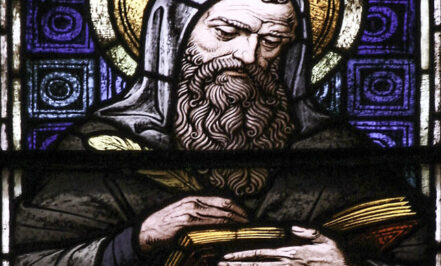
The Venerable Bede
Bede (672/3-735) was a monk who spent his life in Northumbria, mostly in St. Paul’s Monastery in Jarrow. He is the earliest historian of England of whom we are aware. As a dedicated scholar and teacher, he wrote prodigiously, with perhaps 60 books to his name. These covered a range of topics but the most famous is his 5-volume ‘Historia Ecclesiastica Gentis Anglorum’ (HEGA) which records the country’s conversion to Christianity, thereby including many interesting supplementary details.
Bede gathered his information from the Monastery’s library of 300 books (huge for that time) and from witness accounts, traditional legends, Vatican documents and correspondence with other monasteries. Fortunately, HEGA avoided oblivion during later Viking/Danish occupation as it was copied for distribution all over Europe. It was translated into Old English 150-200 years later and finally put into print some 750 years after Bede’s time.
Through HEGA, Bede promoted the use of the ‘Anno Domini’ (A.D.) counting system for calendar years. His study of timelines included verifying the annual calculation of the date of Easter. In 836 the Church declared him ‘Venerable‘ and in 1899 he was made a saint and a ‘Doctor of the Church’. His industry was thus rewarded posthumously and his legacy is part of British culture.
(Image [cropped]: Lawrence OP at Flickr.com / CC BY-NC-ND 2.0)
